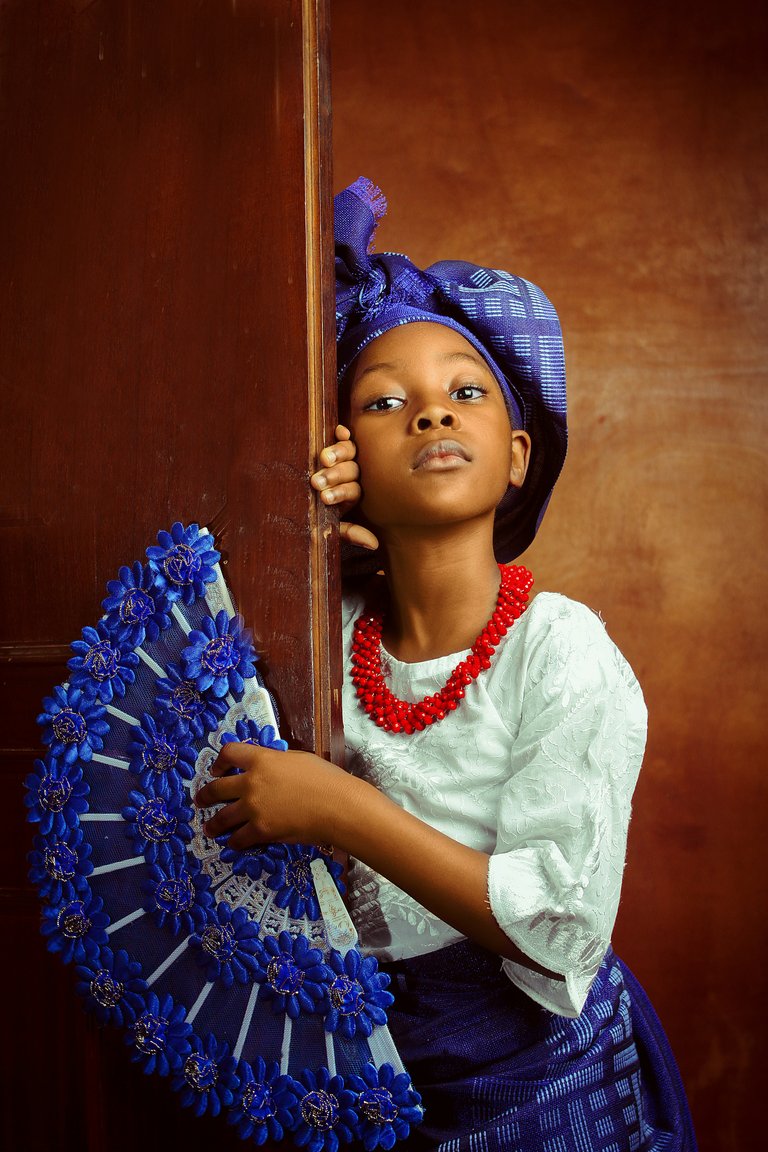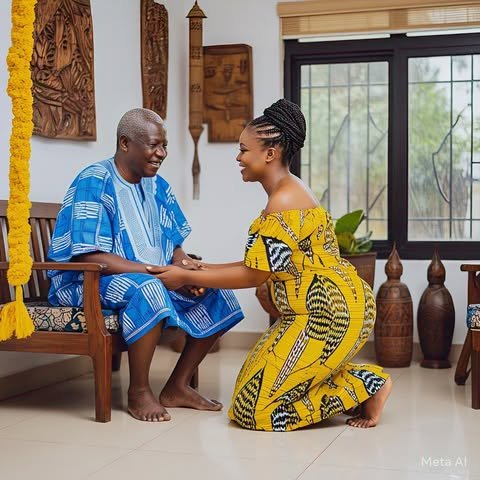The Culture We Carry in Our Blood
Being away from home and my people these past few months has made me realize something I never really paid attention to before,the importance of tribe and culture.
Before we go any further, let’s get clear on what culture is.
According to Frontiers
Culture refers to the shared beliefs, values, traditions, and practices that define a group of people. It shows up in everything—language, food, music, art, the way we talk, how we greet, what we wear... even how we marry.

You see, before I left home, most aspects of Yoruba culture didn’t feel like such a big deal. Take weddings, for example. It always looked like a whole lot of stress. I used to think all that stress just sucked the joy out of marrying the love of your life.
But now? I realize I didn’t understand the beauty in it.
In Yoruba culture, there’s no such thing as “elope with the love of your life.” No ma’am. The groom and his friends must come and prostrate before the bride’s parents, pleading for their blessing to marry her.
What that act symbolizes? Deep respect.
It’s not just about tradition, t’s a sign that the bride was raised right. That her parents put in the work. In Yoruba land, respect is everything. That’s why you’ll never hear us call our elders by name. We use Sir or Ma. A woman kneels when greeting her parents or any elder. A man lies flat on the ground in greeting. No exceptions.
So when the groom prostrates, he’s not just doing it for show. He’s saying, “We recognize where your daughter is coming from, and we’re ready to honour that.”
Another deeply symbolic part of Yoruba weddings is the return of the bride price. Her family might ask for a fee, but in most cases, they return it either during or after the ceremony. That’s their way of saying, “Our daughter isn’t for sale. We’re giving her to you because we trust you’ll treat her well. But remember, she’s still ours.”
That gesture alone shows the depth of parental love and protection. And honestly? It hits differently when you’re older and you understand the weight of those actions.
There’s also something deeply sacred about receiving your parents’ blessing in a traditional marriage. It’s not just two people joining their lives, it’s two families agreeing to become one.
But the biggest cultural shock I got after leaving home was realizing that the kind of respect we practice as Yorubas isn’t the norm everywhere.
Give a Yoruba person a gift today, and they’ll thank you today (ese), tomorrow (ese ana), and next week (eseun ojo).
It may not always mean they’re the kindest people in the world, but it shows they were raised with home training.
So, when I see a Yoruba girl who proudly says she can’t speak the language or greet properly, it breaks my heart. Because one of our greatest strengths as a tribe is how rooted we are in respect and communication.
There’s still so much more about Yoruba culture that I adore, but this part? The emphasis on language, on respect, on acknowledging the people before us, that means everything to me.
Because when you raise a respectful child, you’re also raising a kind human in some way. A child that will offer help without being asked. A child that’ll carry an elder’s bag or offer their seat without hesitation.
I’m not saying other cultures don’t value these things. But this is my Yoruba pride speaking.
And yes, I can’t wait to teach my children how to speak the language, and the deep meaning of respect in Yoruba culture.
This article is in response to https://ecency.com/hive-11060/@hive-naija/hive-naija-weekly-prompt-edition-95-kbk?referral=whatmidesays
Posted Using INLEO



View or trade
LOHtokens.@whatmidesays, You have received 1.0000 LOH for posting to Ladies of Hive.
We believe that you should be rewarded for the time and effort spent in creating articles. The goal is to encourage token holders to accumulate and hodl LOH tokens over a long period of time.
So the word is ese? Your s is “sh” and that’s why you pronounce Asake as Ashake. Ohhh makes so much sense.
The whole reason behind the kneeling down is actually very beautiful, I now get it. I always had my eyebrows raised anytime I saw these things in movies.
Yesssss. In the Yoruba alphabet, we have "s", but we also have "sh". For instance, to say "What did you say" in Yoruba is "Kilo so" -- the "so" here is actually the normal "s"
While some other "s" are pronounced "sh" 😅
It's easier to learn when you're amongst people who speak the language.
Indeed it is. Every culture has some beautiful meaning to it.
I also recently just learned that "Memulo" is actually a thing in SA. Do you do something similar in Ghana?